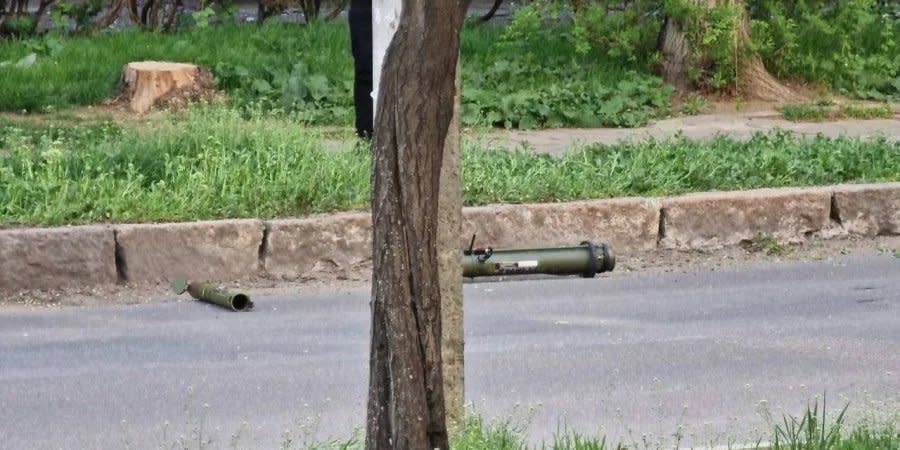Ukrainian intelligence calls explosions in Russian-backed Transnistria a false flag

Chisinau stressed that they continue to monitor the situation.
"The task of today's incident is to create an excuse to aggravate the security situation in the Transnistrian region, which is not controlled by the constitutional authorities,” the Bureau of Reintegration stated.
Read also: Moldovan Foreign Ministry summons Russian envoy over threats to Transnistria
On the evening of April 25, media outlets in Transnistria reported that a "series of explosions" had occurred at a so-called Ministry of State Security building in the capital of the Russian-occupied Transnistria region.
Read also: Russian missile strike on Odesa kills journalist, her three-month-old baby
The so-called ministry said that "according to preliminary information, the shots were fired from an RPG," and nobody was reportedly injured. They claim that windows were smashed on the upper floors of the "ministry" building. Telegram channels also published a photo of an object resembling a tube fired from a grenade launcher.
The Security and Intelligence Service of Moldova held an emergency meeting following the incident, Moldovan news outlet tv8.md reported.
The Central Intelligence Agency of the Ministry of Defense of Ukraine has stated that the explosions were a planned provocation on the part of the Russian special services, and published correspondence on Facebook as evidence.
The press service of the agency said that allegedly RPG-22 and RPG-27 were used to fire at the building.
Read also: Ukrainian military holds firm across Donbas contact line as Russia attempts to inch closer
According to Ukrainian intelligence, on April 22, the secretary of the so-called state commission for emergency response of Transnistria, Vadim Shmalenko, sent a letter to the head of Camenca district, Vladimir Bychkov. The local “official” refers to the need for “urgent preparation of data on the existence and location of a protected point of the city's civil defense administration" and that, if such a point does not exist, it should be established immediately.
"… Three days before the incident, the leaders of ‘PMR’ were already preparing for it and ensured the preparation of a secure and comfortable bunker,” Ukrainian intelligence said.
Read also: A history of adversaries, not brothers. Why did this war happen?
“It is obvious that this case is one of a number of provocative measures organized by the (Russian security service) FSB to instill panic and anti-Ukrainian sentiment. According to the architects, [these measures] should justify the war on the territory of Ukraine or involve the ‘PMR’ in hostilities. Either as a territory with a certain mobilization reserve, or as a area from which Russian troops can carry out attacks on Ukrainian territory.”
The agency believes that the FSB will continue to conduct ‘false-flag’ terrorist attacks in the unrecognized Transnistrian republic.
Earlier, the Odesa military administration warned that the Russian military could organize provocations on the territory of unrecognized Transnistria for a further attack on Ukraine. The General Staff of the Armed Forces of Ukraine also mentioned this risk. There are more than 1,000 Russian troops in the self-proclaimed Transnistrian statelet.
Read also: Russia hiding scale its losses in Ukraine from its population, UK Defense Ministry says
The deputy commander of Russia's Central Military District previously said Russian troops wanted to "get land access to Transnistria" after their plans to capture southern Ukraine. Russian propaganda claims that the Russian-speaking population is being "oppressed" there. Due to threats from the aggressor country, the Moldovan Foreign Ministry summoned the Russian ambassador.
In fact, there is no evidence whatsoever of widespread oppression of Russian speakers in Moldova.

